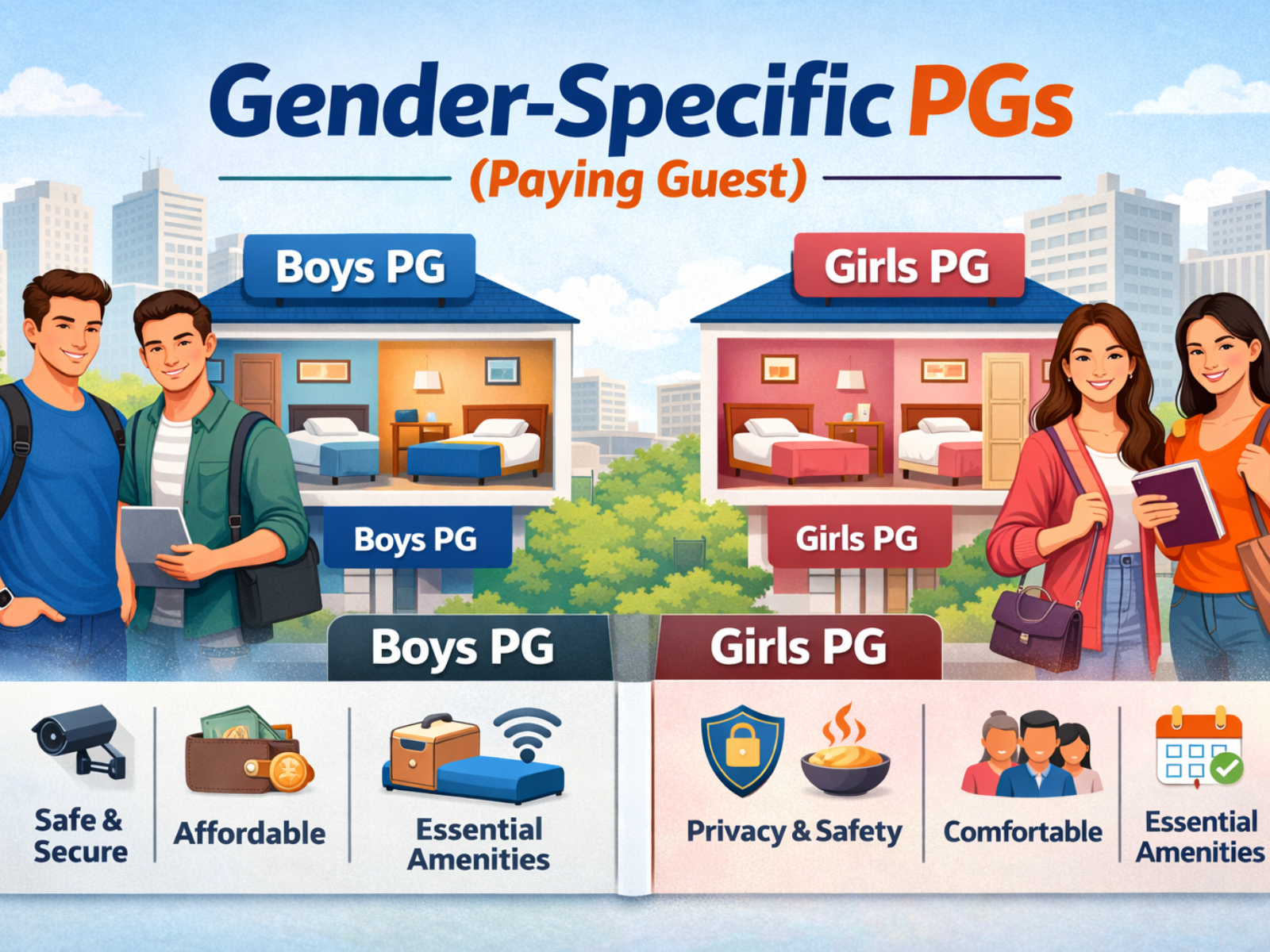
Bangalore, often referred to as the "Silicon Valley of India," is a city that attracts professionals, students, and families alike, owing to its thriving tech industry, pleasant climate, and diverse culture. However, like any other major city, understanding the cost of living in Bangalore is crucial to managing your finances effectively. Whether you’re planning to move to Bangalore for work, study, or a fresh start, this guide provides a detailed breakdown of the city's living costs in 2025.
1. Housing and Rent in Bangalore
One of the largest expenses you'll incur while living in Bangalore is housing. The city's real estate market is dynamic, with prices varying depending on the neighborhood, proximity to work hubs, and available amenities.
Rent Prices:
-
Single Bedroom Apartment: The cost of renting a 1BHK (one bedroom, hall, and kitchen) apartment in the city center like Koramangala, Indiranagar, or MG Road can range from ?20,000 to ?35,000 per month. Rent tends to be lower in areas such as BTM Layout, Jayanagar, and Whitefield, where it may range from ?12,000 to ?25,000.
-
2-BHK Apartment: A 2BHK in the city center will cost between ?30,000 and ?50,000 per month. In suburban areas, the rent can drop to ?20,000 to ?35,000, depending on the location and amenities.
-
PG Accommodation: For those on a tighter budget or students, paying guest (PG) accommodation is a popular option. PG rent can range from ?7,000 to ?15,000 for a basic room, while more upscale PGs with better facilities can go up to ?18,000 or more.
Additional Costs:
-
Security Deposit: Typically, landlords require a security deposit of 3 to 6 months' rent. While this may seem steep, it’s common in most Indian cities.
-
Maintenance Charges: Apartments in apartment complexes often have maintenance fees, which can range from ?1,000 to ?3,000 depending on the size of the property and amenities offered.
2. Utilities
Utilities like electricity, water, internet, and gas are crucial components of your monthly living costs.
Monthly Utility Bills:
-
Electricity and Water: On average, electricity and water bills in Bangalore can range from ?1,500 to ?3,000 per month for a small to medium-sized apartment, depending on usage and the type of accommodation.
-
Internet: Internet costs in Bangalore are fairly reasonable. A standard broadband connection (with speeds ranging from 50 Mbps to 100 Mbps) typically costs between ?800 and ?1,500 per month.
-
Gas Cylinder: A 14.2 kg LPG gas cylinder costs around ?900 to ?1,000, depending on the supplier and availability.
3. Food and Groceries
Whether you prefer cooking your meals or dining out, the cost of food in Bangalore varies based on your lifestyle choices. The city offers an extensive range of eating options, from budget-friendly street food to high-end restaurants.
Groceries:
If you're someone who cooks at home, here’s an idea of the average grocery costs:
-
Rice (1 kg): ?40-?60
-
Milk (1 liter): ?50-?60
-
Vegetables (1 kg): ?40-?80 depending on the season and variety
-
Fruits (1 kg): ?80-?150 depending on the type of fruit
-
Eggs (12 pieces): ?70-?100
Overall, monthly grocery expenses for a single person can range from ?2,000 to ?4,000, depending on consumption.
Dining Out:
Bangalore is famous for its vibrant food scene, offering an array of eateries at various price points.
-
Budget Meal: Eating at a local restaurant or dhaba can cost ?100 to ?300 per meal.
-
Mid-Range Restaurant: A meal for two at a mid-range restaurant may cost ?600 to ?1,500.
-
High-End Restaurant: Dining at upscale restaurants can cost ?2,000 to ?5,000 for two people.
4. Transportation Costs
Bangalore's public transportation network is vast but can get crowded, especially during peak hours. While the city also offers options like ride-hailing services (Uber, Ola), the cost of traveling can add up quickly.
Public Transport:
-
BMTC Bus: Bangalore’s BMTC buses are the most affordable mode of transport, with fares ranging from ?10 to ?50 depending on the distance.
-
Namma Metro: The metro, which has expanded significantly in recent years, is another convenient option for commuting. Metro tickets range from ?10 to ?60, based on the distance covered.
-
Auto Rickshaws: The base fare for an auto rickshaw ride is ?25, with an additional ?15 for every 2 kilometers. Longer rides may cost ?100 to ?300 depending on the distance.
Private Transport:
-
Car Ownership: If you own a car, fuel costs can range from ?7,000 to ?10,000 per month for regular usage, depending on your commuting distance. Insurance and maintenance costs for a car will add an additional ?3,000 to ?5,000 per month.
-
Bike Rentals: For those preferring two-wheelers, bike rentals can range from ?3,000 to ?5,000 per month for basic models.
5. Healthcare
Bangalore has a robust healthcare system with numerous public and private hospitals. Medical costs in the city are relatively affordable compared to other metros, but it’s important to factor healthcare expenses into your budget.
-
Consultation Fees: A visit to a general physician can cost between ?300 and ?800. Specialist consultations may cost ?800 to ?2,000.
-
Health Insurance: A basic health insurance plan may cost between ?5,000 to ?15,000 annually, depending on the coverage and the insurance provider.
6. Entertainment and Leisure
Bangalore offers plenty of options for entertainment and leisure. From cafes, pubs, and theaters to weekend getaways in nearby areas, there’s always something to do.
Entertainment Costs:
-
Movie Ticket: A movie ticket in a multiplex costs around ?200 to ?500, depending on the time of the day and the cinema hall.
-
Gym Membership: A basic gym membership costs ?1,000 to ?3,000 per month, while premium gyms can charge ?4,000 or more.
-
Night Out: A night out at a pub or bar can cost anywhere from ?1,000 to ?3,000 for two people, depending on the location and the kind of drinks you order.
7. Childcare and Education
For families living in Bangalore, the cost of education and childcare is a significant factor in budgeting.
Schooling:
-
Private Schools: The annual fees for private schools range from ?40,000 to ?2,00,000, depending on the school’s reputation, infrastructure, and location.
-
Daycare/Preschool: Daycare or preschool costs can range from ?5,000 to ?15,000 per month, based on the facilities and location.
8. Miscellaneous Expenses
Bangalore has a number of additional costs to consider. Here's a quick glance at other expenses:
-
Clothing: Mid-range clothing from brands like Levi’s, H&M, and Zara can cost ?1,000 to ?3,000 per piece. Local markets or shopping malls offer a wide variety of options.
-
Personal Care: Basic toiletries like shampoo, soap, and toothpaste can cost ?500 to ?1,500 per month.
-
Mobile and Internet: Mobile bills typically range from ?200 to ?600 per month for a basic plan, and internet plans can cost around ?800 to ?1,500 per month.
Conclusion: Is Bangalore Affordable?
The cost of living in Bangalore is relatively high compared to smaller cities, but it remains affordable when compared to other major metros like Mumbai or Delhi. The city offers a mix of affordable and upscale options across housing, food, and transportation, making it adaptable to various budget levels. While housing and rent may be the largest expenses, the relatively lower transportation costs, grocery prices, and dining options provide some relief.
If you're planning to live in Bangalore, it’s essential to budget carefully, especially if you’re moving to a more upscale neighborhood or have a family. With a balanced approach to lifestyle choices and careful financial planning, you can enjoy everything Bangalore has to offer without breaking the bank.
Also Read: Cost of Living in Delhi








